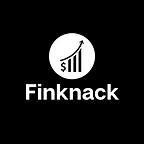Before reading this article on financial assets, I would like to suggest having a look at my previous article on financial systems. I have attached the link to that article, Please look into that for a better understanding of financial assets.
Financial Assets are intangible liquid assets and are generally issued by financial institutions like Banks, Stock Exchanges, governments, and other bodies.
Now, what are intangible and liquid?
Intangible assets do not exist physically but are based on a mutual contract between two different parties. Examples of such assets are stocks and bonds.
Liquid assets: These are the assets that can be easily converted to cash. Let me explain it with an example, suppose you own a house and you want to sell it. How long does it take you to sell it at a reasonable price, anywhere between a month and a year? What if you had to sell your bonds, how long would that take? Hardly, a day? So, here the bonds are liquid when compared to an asset like land or house.
TYPES OF FINANCIAL ASSETS:
Cash & The Cash Equivalents:
Cash & Cash Equivalents are highly used Financial Assets by businesses, common people, and Financial Institutions. These highly used liquid assets are Bank balance, Cash Balance, and cheques that are not cleared by the bank.
Fixed Deposit:
When an individual or business deposits some amount in a financial institution like a bank expecting a return in the form of interest on the amount deposited.
Mutual Funds:
Mutual Funds are a type of financial instrument where a pool of money is collected from multiple investors and invest in assets like bonds, stocks, and other assets by a financial professional. After some period, profits are shared among investors based on the amount contributed by the investor.
The major advantage of mutual funds is, they allow small investors to access professional shares and bonds.
Derivatives:
A derivative is an agreement between two or more parties whose value is based on agreed-upon underlying assets (like a security) or a set of assets (like an index).
Generally, derivatives are considered advanced investments.
The most common derivatives in the financial markets are Forwards, Futures, Options, and Swaps.
Insurance Contract:
Insurance, namely policy is a financial service offered by insurance companies to individuals ( also called policyholders). These Individuals pay compensation based on the policy opted to the insurance company expecting a right to compensation in an emergency or unexpected situation.
Shares:
Share is a financial asset offered by corporates to investors where capital is exchanged between investors and corporates in return for these shares.
Shares are of two types
(i)Common Shares: These kinds of shares in a company enables voting rights for the investors.
(ii)Preferred Share: Preferred Share doesn’t give voting rights but can give attractive returns for the investors. These are publicly traded shares.
Bonds:
A bond is a fixed financial Instrument used by governments and corporates to raise funds by the investors by offering some interest rate(i.e, coupon rate) on the money borrowed.
Now, I hope you have a clear understanding of what exactly these financial assets are and I hope you have understood the basic definition and working of these assets. In the upcoming articles, I will discuss everything in-depth :), so don’t worry if you are unable to understand any of these assets now. Feel free to have a discussion with me in the comment section.
